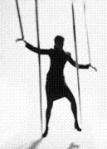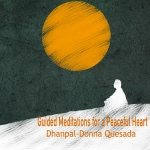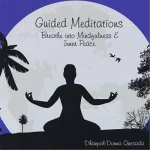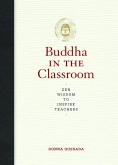 It’s hard to imagine Pavarotti or Maria Callas not ending up as singers. It’s as if they came to uplift, inspire, heal and delight the world with their voices. Each soul is incarnated to fulfill its destiny, according to Yogic philosophy, and when we awaken to that purpose, we are living according to our destiny.
It’s hard to imagine Pavarotti or Maria Callas not ending up as singers. It’s as if they came to uplift, inspire, heal and delight the world with their voices. Each soul is incarnated to fulfill its destiny, according to Yogic philosophy, and when we awaken to that purpose, we are living according to our destiny.
A poetic expression of this idea is found in this passage:
Your mission is to vibrate higher in your vessel so you awaken completely to your sacred purpose. ~Dror B. Ashuah
This awakening is the key to our sense of fulfillment. But it is a huge challenge in a society, which would tempt us, left and right, to seek fulfillment from external sources and all things pinned to appearance—from the allure of a sexy body to the amusement of a new gadget, to the promises of the perfect dream vacation. Profit is made by keeping us trapped in a cycle of codependency and separateness. The tragedy is that we are kept from our own inner power. The result is a never-ending cycle of unrecognized addictions of every sort, in which, fueled by a vague neediness, we go on supporting this infrastructure—a mega-system that thrives on our insecurities.
How can we wake up from this codependency and align ourselves with our destiny? This wisdom, this sense of knowing is already within. It is the little spark of light that shines forth from within. But because the fog of our emotions and obsessions is so thick, we often miss it. But when we pause for a moment to let the fog settle, we find it. And we delight in its warmth. And sometimes we summon the courage to trust that light and let it guide us along our path.
Where does free will fit into this?
The minute we come to center, we find ourselves nourished. Like drinking from the nectar of our own internal fountain of bliss, we feel full. Those things on the outside seem to lose their appeal. We realize that what we tend to call free will, is but a confused mix of desires shaped by others and meant to mask insecurities. We have taken the reins of our life. But this requires the choice to wake up from those things that have held us hostage for too long—the things on the inside, like unhealthy emotions and insecurities, as well as the things that keep us wobbling around on the outside. As soon as we stop believing that there’s a quick fix “out there” in the world of pills and thrills, we begin to take steps on our true path. And we begin to resist those things that take us off our path. This is the beginning of waking up.
So, what is fate?
Fate, according to Yogic wisdom, is the black hole of other people’s opinions and ideas. It is the nowhere land, in which we get lost in the web of expectations and pressures set by others, be it society, parents, or personal delusion. These pressures drown out the voice of the spirit and over-ride our own sense of self-authority and purpose.
Every time we come to center, we have made a choice. We have honored our commitment to align with our sense of purpose. This is free will.
Walking our path, guided by our ever-brightening inner light, we encounter our karma (which doesn’t mean punishment). Think of karma as the residue of our actions, either in the here and now or in the here to fore. It is everything we have inherited, assumed, absorbed and adopted—from our DNA, to our zodiac sign, to our first kiss, to our first break up. It’s the record of all the patterns and habits that are embedded in our mental, physical and psychological selves, right down to our very cells. Why bother about it? Because that which would transform has first to be exposed.
And this process of transformation is strengthened by our moment-to-moment commitment and through the tools of practice—which we may call “spiritual,” since the desire to come back to center and to wholeness is a spiritual one. These tools include, but are not limited to, the uplifting presence of community, meditation, movement, and especially, intention.
Waxing philosophical.
Am I, as the western philosophers would say, pre-supposing the existence of free will? To that, I extend a brief summary of Sartre’s position, that as conscious beings, we are innately free. Where I differ (and where I differ from my earlier position, as expressed in my book, Buddha in the Classroom), is on how this relates to destiny. Diehard existentialists, like Sartre, reject any suggestion of a deterministic universe, one which would open up a world of easy excuses that render us helpless, like puppets on the strings of our inherited tendencies. Typical of the western tendency to polarize beyond repair (and even more typical of an existentialist like Sartre, who was allergic to any species of God-talk), destiny and free will are seen as irreconcilable.
But, what if we instead, look upon destiny as a flexible journey, in which my will and God’s will (or universal will…or divine will) are one and in sync?
To be clear, free will, as it is typically defined, is the ability to choose from among genuine alternatives. In the world of eastern mysticism, we go further here, too; while existential freedom describes our conscious choosing, the Yogis were more interested in our state of consciousness, itself.
The difference is subtle but immense, since it is our state of consciousness that structures what we see as choices, in the first place. What most people think of as freely choosing is nothing more than habit patterns and uncontrollable desires for things that aren’t necessarily good for us. The more conscious we are, the more inclined we will be to investigate those ingrained tendencies (what the Yogis call samskaras), and the more adept we will be to change what we can and reconcile ourselves lovingly with those we can’t. This happens through those Yogic tools and through all meditative practices, which temper our reactive mind while taming the twin dragons; fear and anger.
Ultimately, the more conscious we are, the more freedom we have.









